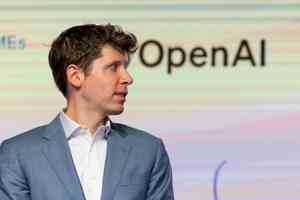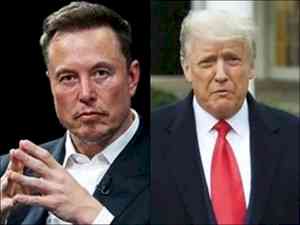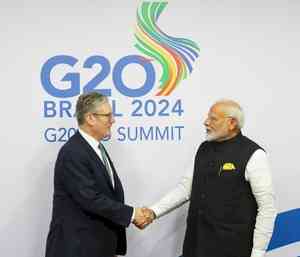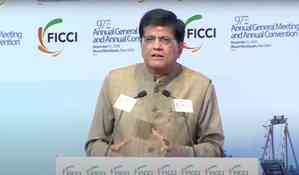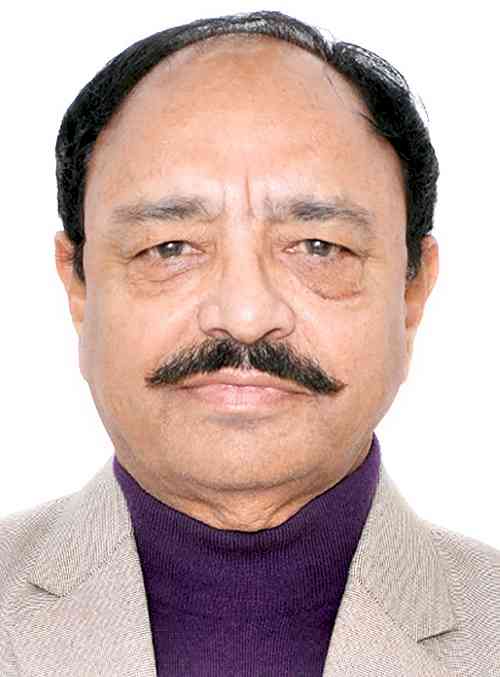Debate rages on Indian kids' exposure to ChatGPT in classrooms
As conversational artificial intelligence (AI) becomes a talking point on social media, representatives from Indian schools and experts on Tuesday expressed divisive concerns over children's exposure to the AI chatbot in the classrooms.
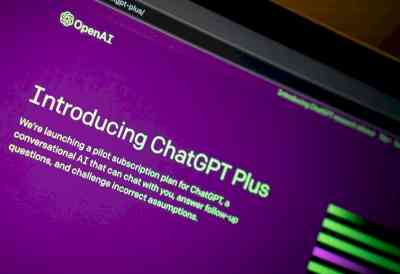
New Delhi, April 4 (IANS) As conversational artificial intelligence (AI) becomes a talking point on social media, representatives from Indian schools and experts on Tuesday expressed divisive concerns over children's exposure to the AI chatbot in the classrooms.
Schools around the world have already banned ChatGPT, citing concerns that the AI tool which has been helping people write poems, essays and even work papers, can provide inaccurate information and enable cheating.
According to Nikita Tomar Mann, Principal at Indraprastha Global School in Noida, as amazing and fascinatingly incredible as it appears, "ChatGPT is still at a nascent stage" for us to fully comprehend its ramifications.
"Schools must keep it at bay for the time being, till such time we understand its need and utility at the school level," Mann told IANS.
Children should rather be trained to be doing their own research, assimilate information, and construct their own knowledge out of it.
"After all, it isn't prudent to give up our unique thought processes as humans, to AI," she noted.
According to the school authorities, chatGPT is not a reliable source of information.
A growing number of schools at all levels in the US banned ChatGPT, prohibiting students from using it on school servers or even in aid of activities outside of school grounds.
In Australia, almost every state and territory department of education blocked ChatGPT on the school internet networks.
According to educationist Meeta Sengupta, ChatGPT can be a challenge for educators as they have to help kids to learn how to ask good questions.
"It can be used as a tool for asking questions; build up critical thinking skills in children. Though it is not reliable, children should not be denied using it because it is a tech of the future," said Sengupta, adding that in the coming days, it will become more advanced.
Dr Sibi Shaji, Registrar, Garden City University (GCU) Bengaluru, told IANS that ChatGPT should be allowed as it allows creative thinking and is more of "experiential learning".
There are other concerns as well with the AI chatbots.
Microsoft-owned OpenAI has now blocked access to its AI chatbot ChatGPT in Italy in response to an order from the local data protection authority to halt processing Italians' data for the ChatGPT service.
In its order, the Italian regulator Garante said it's concerned that the ChatGPT maker is breaching the European Union's (EU) General Data Protection Regulation (GDPR), claiming that OpenAI has unlawfully processed the data of Italian citizens.
Several top entrepreneurs and AI researchers, including Tesla and Twitter CEO Elon Musk and Steve Wozniak, Co-founder of Apple, have also written an open letter, asking all AI labs to immediately pause training of AI systems more powerful than GPT-4 for at least 6 months.
Arguing that AI systems with human-competitive intelligence can pose profound risks to society and humanity, more than 1,100 global AI researchers and executives signed the open letter to pause "all giant AI experiments".
"This pause should be public and verifiable, and include all key actors. If such a pause cannot be enacted quickly, governments should step in and institute a moratorium," they wrote.


 IANS
IANS 
